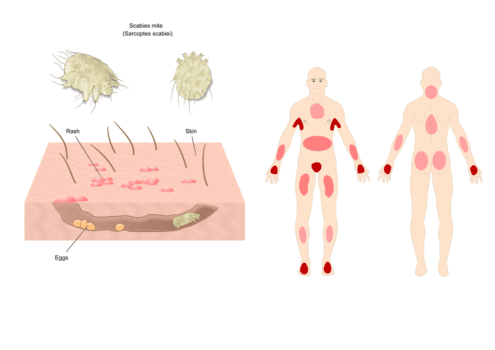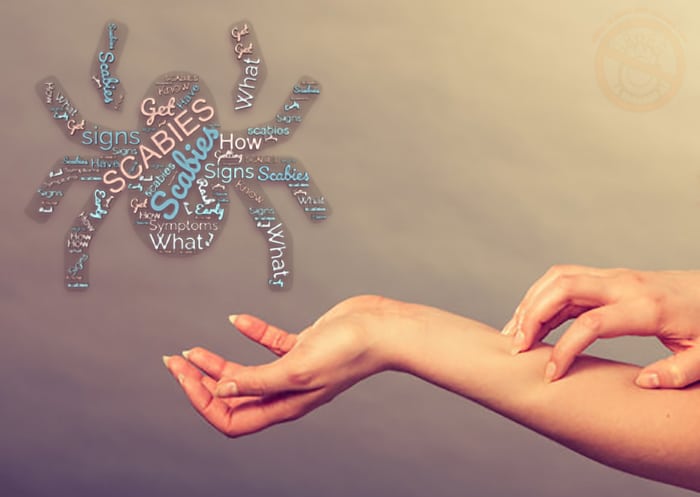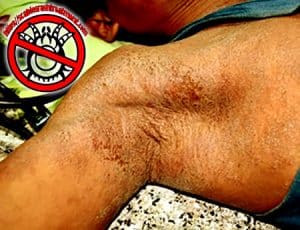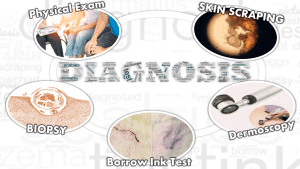Do you suspect having SCABIES? And you’re looking for the signs and symptoms? Don’t worry, we have the right answers: you’ve come to the right place!
What is Scabies?
First, we must define scabies. It is a skin condition caused by a burrowing mite called “Sarcoptes Scabiei” that lives in the skin. This painful disease is very contagious and can be passed from one person to another through close contact or shared bedding or clothing.
Scabies is also called ‘the itch’ or “the seven-year itch” because of the intense itching it causes; This article is about the most common symptoms associated with scabies.
Scabies signs and symptoms:
- Intense itching, especially at night
- Rash on the palms of the hands or soles of the feet
- A pimple or blister on your skin that can be popped to release a mite
- Skin rash that may look like tiny little red dots
What are the Common signs and Symptoms of Scabies?
The most common signs of scabies infection (actually it is an infestation, but the two words tend to be used interchangeably for scabies) are intense itching and rash on the skin. Usually, the itch is worse at night and can lead to sleepless nights. Other symptoms include dry skin, pimples, crusty patches, and redness on the skin.
Other signs you’re getting scabies:
- Itching at night
- Irritation in an area where you don’t have any skin problems
- Intense itching that lasts for days on end
- Redness, swelling, or soreness…
What are the Signs You’re Getting Scabies?
How Do I Know If I Have scabies?
The most common symptoms are tiny red bumps (lines with a dot at one end) on the skin, which may cause an itch or rash. In order to know for sure if you have scabies, There are several ways to diagnose scabies:
Including a physical exam, the healthcare provider may take a sample of your skin in order to look at the bumps, and test for mites and eggs in the bumps using a microscope.
Also, the dermatologist may ask about: the signs you have noticed, what parts of the body are affected, and if you have been in close contact with anyone who has had a skin rash…
Where does scabies usually start?
Normally, scabies is often seen in the skin folds, in areas around your wrists, finger webs, elbows, hands, armpits, waist, knees, ankles, or groin. However, scabies can appear on many parts of the body.
This is a photo showing where scabies starts and spreads:

Credit: shutterstock.com
Scabies signs in toddlers
Scabies is common among children and infants and may be spread quickly and easily through childcare, and nurseries. It is important to know the signs and symptoms of scabies to make sure that your child receives an accurate treatment. In babies, scabies rash often appears on the palm of the hand and sole of the feet; also in the head and neck.
Some common symptoms of scabies in toddlers include:
- Itching,
- Red bumps,
- burrow tracks.
- Blistering lesions.
- Sores.
- Scales on the skin.
Conclusion
Summing up, scabies is a parasitic skin infection transmitted through close skin-to-skin contact with an infected person. Scabies can be difficult to diagnose without a skin scraping. But, it’s usually easy to identify if you already know the signs.
You can prevent the scabies infestation by washing your clothes and bedding often and avoiding contact with anyone who has it; Also, avoid sharing personal items such as towels, bedding, clothing, and cosmetics.





